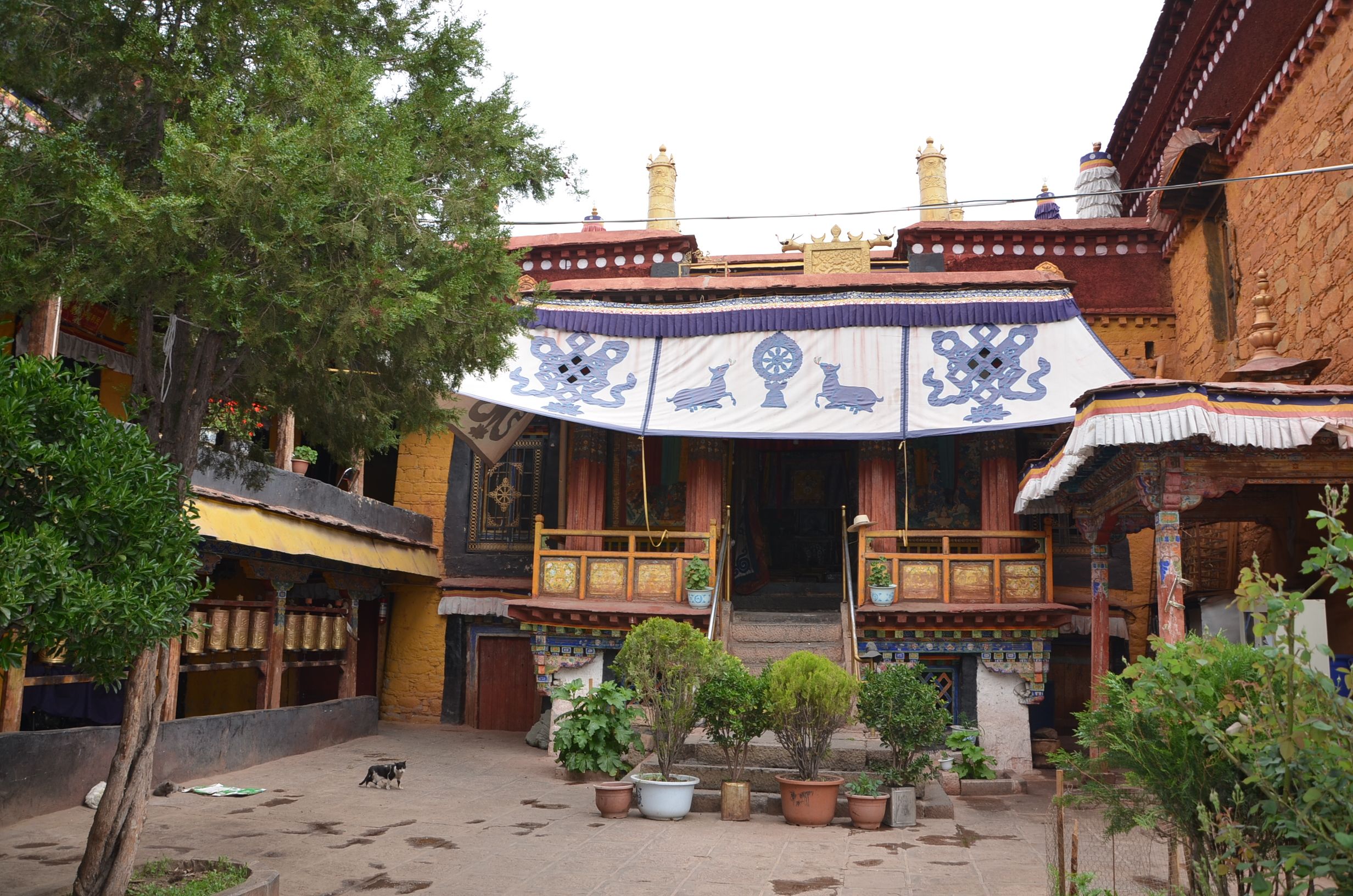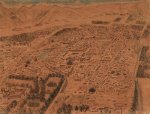
Meru Dratsang was the largest historic compound of the old town of Lhasa after the Tsuklakhang. Local history claims that the earliest temple of Meru, the Tsangpa temple, was founded by a minister of King Relpachen in the ninth century but the only available historical source suggests that Meru was founded in the eleventh century. In the sixteenth century, Meru was transformed into a Geluk monastery. In the nineteenth century, Meru became a regency seat when it became the Lhasa residence of the Regent Dedruk Rinpoche, Lobzang Khyenrab Wangchuk, formerly the Seventy-sixth Ganden Tripa. Meru has a close relationship with Sera Monastery, where the Regent Dedruk completed his studies. Meru Dratsang was closed down in 1959. In 1989, a small protector chapel was reopened and the reestablishment of a monastic community was officially permitted.
